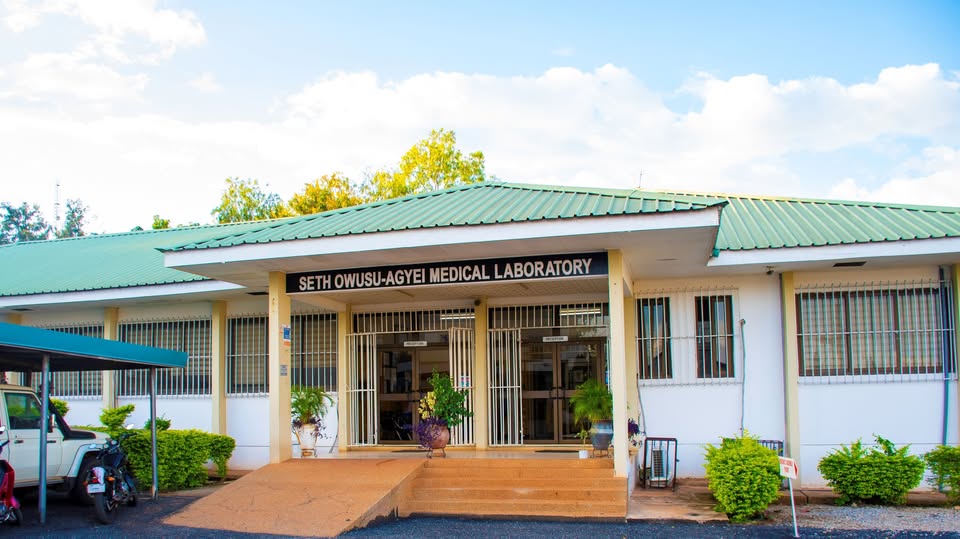The Kintampo Health Research Centre joined a diverse assembly of health researchers, policymakers, and partners in Accra for the 2025 Health Research Dissemination Forum and Health Research Officers’ Conference, held under the auspices of the Research and Development Division of the Ghana Health Service from August 12 to 14. This annual gathering provided a dynamic platform for sharing cutting-edge evidence and charting collaborative pathways toward Ghana’s ambition of Universal Health Coverage.
The forum’s theme, “Research for Universal Health Coverage (UHC): Innovations and Sustainability,” framed discussions on leveraging scientific inquiry to strengthen health systems and extend equitable access to care. Senior officials from the Ghana Health Service, academic institutions, development partners, and representatives of research centres convened to explore how emerging findings can inform policy, guide programme implementation, and catalyse sustainable health innovations across the nation.
“In Ghana, UHC means ensuring that everyone—regardless of income, location, or social background—has access to quality health services without facing financial hardship,” a declaration that underscored the forum’s overarching goal. Central to this vision are the National Health Insurance Scheme, introduced to alleviate financial barriers to care, and Community-Based Health Planning and Services, which bring essential services to rural and remote communities. By aligning research agendas with these foundational programmes, stakeholders sought to close equity gaps and propel Ghana closer to UHC.
The breadth of topics spanned maternal, neonatal, and child health; reproductive health; non-communicable diseases; environmental health; nutrition; and digital health ethics. Dedicated sessions examined maternal vaccine readiness, malaria vaccine effectiveness, COVID-19 immunization strategies, and the Networks of Practice initiative designed to bridge gaps between evidence generation and field application. Through these diverse lenses, participants assessed how targeted research can drive innovations and inform scalable interventions.
KHRC’s contribution was particularly noteworthy, with twelve researchers delivering oral and poster presentations on a spectrum of studies that married biomedical investigation with community-based inquiry. Among these were the PRISMA project on maternal, newborn, and child health; an assessment of household air pollution exposure in Techiman; healthcare providers’ perspectives on integrating neurodevelopmental assessments into routine child welfare services; and the prevalence of HIV, hypertension, diabetes, and hepatitis B co-morbidities in Ghana’s middle belt.
Other presentations showcased the use of artificial intelligence in malaria diagnostics, a community surveillance study of intestinal parasitic infections among primary school pupils, the impact of iron fortification on childhood anaemia in rural settings, and the barriers and facilitators of maternal vaccine uptake in Kintampo. By highlighting both laboratory-driven and participatory research, KHRC illuminated pathways for translating evidence into policy and practice.
Following the dissemination forum, the Health Research Officers’ Conference convened research officers from across Ghana to exchange experiences, reflect on ongoing projects, and identify opportunities for collaboration. Panel discussions explored how research can bolster programme implementation, strengthen professional development within health research centres, and provide practical guidance on accessing research grants. Participants also engaged in a technical session on qualitative data analysis and an open forum focused on strategies to reinforce the nation’s health research ecosystem.
Together, the two events highlighted the indispensable role of health research in driving innovation and building sustainable solutions for Ghana’s health challenges. By convening stakeholders, disseminating actionable findings, and fostering interdisciplinary collaboration, the 2025 forum reaffirmed Ghana’s commitment to evidence-informed progress toward Universal Health Coverage. As KHRC and its partners continue to translate research into impact, the country moves ever closer to ensuring that quality health services are accessible to all, thereby laying the groundwork for a healthier and more equitable future.
Source: KHRC Researchers Share Research Findings at 2025 RDD Health Research Dissemination Forum | Khrc



